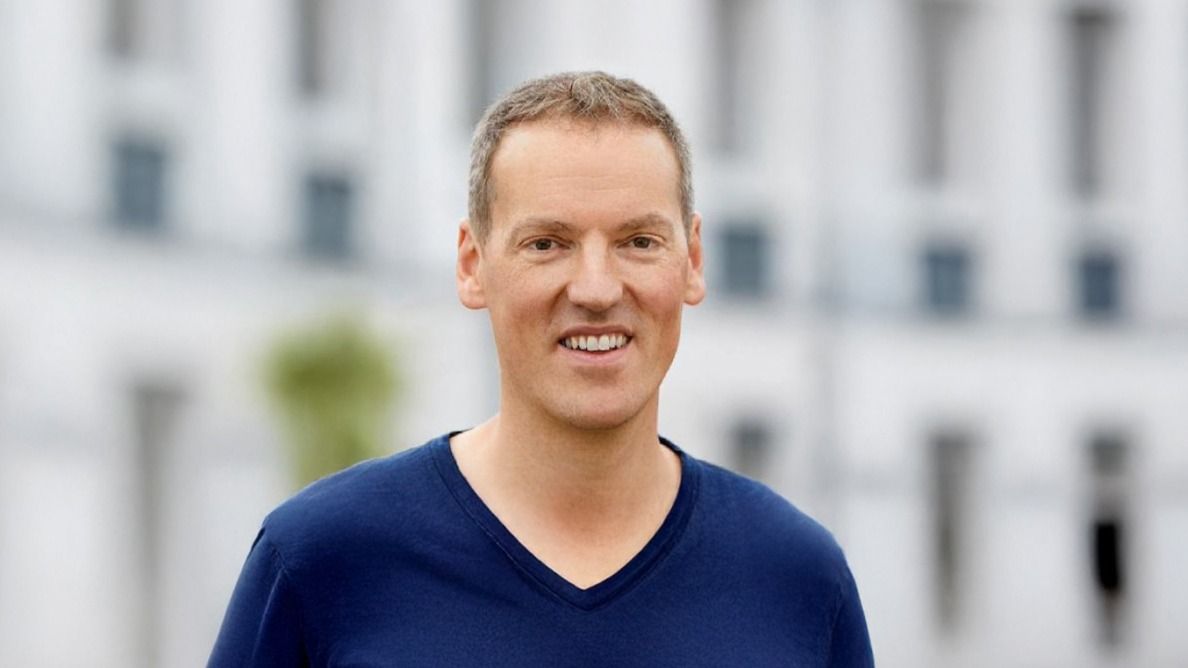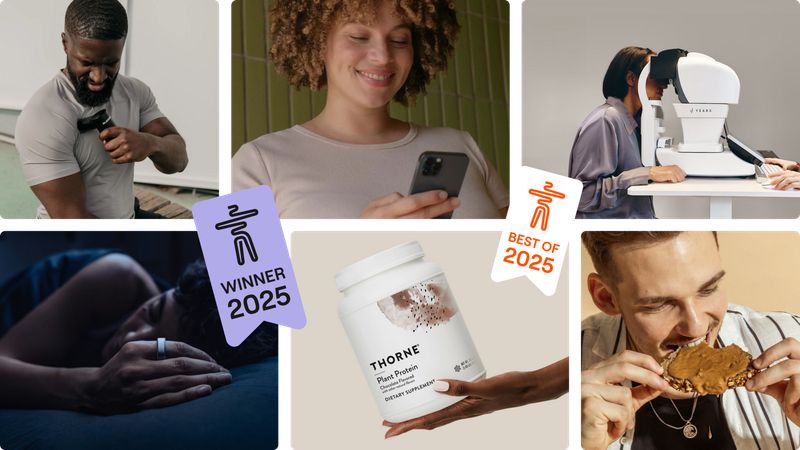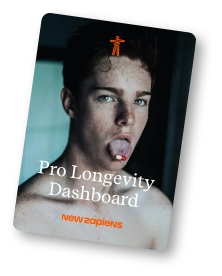Martin Brüggemann – Built to Last: Founder Stories #1

In our new series Built to Last: Founder Stories, we spotlight the people building New Zapiens from the inside out. In part one of the series, we’re featuring Martin Brüggemann, co-founder and CTO of New Zapiens. As co-founder of t3n with 20+ years of product experience, Martin combines deep tech expertise with his passion for ultracycling and health optimization.
You co-founded t3n in 2005 and spent 14+ years building one of Germany’s leading tech media company. What made you leave that success to dive into health optimization?
I felt like I needed to do something completely different and generally thought that there must be a better way to live than spending most of my time sitting in meetings and solving problems that I wouldn't have with a small but excellent team. In addition, I had learned and tested a lot about my body through my ultracycling hobby and wanted to share my insights with others.
New Zapiens is described as “Google Search meets Trustpilot for wellness.” From a technical perspective, what’s the biggest challenge in building search and review systems for health products?
Trust is very important to us. That's why you can only register on newzapiens.com with your mobile phone number. We don't want to be just another fake review platform or five stars amazon rankings, but rather bring real people together with their experiences and tips. With Health Stacks, we give our members the opportunity to share the longevity products they use with just a few clicks, but also to keep track of them for themselves. I often look at my Health Stack and realise, ‘Oh, crazy what I already changed. I'll enter the new one right away.’ The end result is a collaborative guide for those interested in longevity and anyone who wants to live a longer, healthier and happier life.
"With Health Stacks, we give members the opportunity to share longevity products with just a few clicks. I often look at mine and realize: 'Oh, crazy what I already changed."
— Martin Brüggemann, CTO
You’ve built products for millions of users at t3n. How is building for health optimizers different from building for general tech audiences?
At t3n, we built up a tech news platform and print magazine with a great community. Not so different from New Zapiens. What sets us apart, however, is that we are starting New Zapiens much earlier than we did with t3n. We are ahead of the curve, which sometimes makes it difficult to generate enough attention for our topic of healthspan optimisation – at least in Europe. But what could be more important than getting the most out of your own life? We think nothing. That's why we get up in the morning and try to help as many people as possible to live long, healthy and happy lives in a positive way, guiding them through the longevity jungle with scientifically based but easy-to-understand information.
With your R&D advisory experience in AI and cloud-hosting, how are you leveraging cutting-edge tech to solve health discovery problems?
You asked a nerd question so I’ll gladly answer this: Our entire platform relies on best practices in the open source world combined with ai-driven development. We use Laravel with many great standard modules as a framework, kamal deploy from 37signals for Docker-based hosting, and Cloudflare as a CDN. Our entire code is on GitHub, we develop with the AI-supported editor Cursor.com (Cursor Ultra subscription), and this combination of standard frameworks and packages, paired with AI and great product management, allows us to launch new features incredibly quickly and scale globally.
You’re described as an “espresso lover, ultra cyclist, and longevity enthusiast.” How does your personal optimization journey influence the platform you’re building?
I believe that the formula for a balanced life lies in balancing one's roles. That's why I start my day with a workout before I go to work. As a family man and amateur athlete, I don't overdo it with my work. I simply enjoy making espresso with my portafilter machine, and it's part of my day – but only before 1 p.m., so as not to jeopardise my sleep. I try out many longevity ideas and products myself. For example, I'm a big fan of Luminette in winter, and I regularly do spiroergometry on my indoor bike to determine my VO2 max and improve it in a controlled manner. But at the end of the day, it's important not to forget to have fun. Doing something crazy every now and then and constantly learning new things is just as much a part of my life as singing in a choir or going to the cinema with friends and eating popcorn – salted, of course. Sugar while not being active is a no-no ;)
Ultra cycling requires serious performance optimization. What health insights from endurance sports apply to busy founders and executives?
Consistency first. Be in the flow and have fun. Relax actively. Many people worry too much about the details (e.g. how fast, how long, how hard should I train?). None of that is really important. I sometimes do a 45-minute basic training session at around 175 watts when I'm still half asleep – better than overdoing it or not doing anything at all. For my body, training is now like watching television (which I often do during indoor training). Instead of thinking, ‘Oh no, sprint training with 500-watt intervals again,’ I often think, ‘Ah, I wonder what happens next in the Netflix series?’ and the training just runs alongside. I can also use this for myself during long work sessions. Don't overthink it, just get started and work through big projects in lots of small steps + have fun. Of course, it's important to have a clear setup = your goals for training and life. What do I actually want to live for and how do I want to achieve these goals? You should have a rough plan.
What’s one piece of health tech or biohacking equipment that actually changed your performance, and why?
As an endurance athlete, I always skipped strength training or did it poorly. Since buying a farmer's walk setup, I've realised how important and beneficial it can be with minimal effort. I simply walk around the house for two minutes with 84 kg three days a week, and afterwards I feel like I could uproot trees. The mental and hormonal boost alone is incredible.
If you could build any health optimization tool using today’s AI and cloud technologies, what would it be?
A combined continuous measurement device (like Freestyle libre or Sibio sensor) but for the following live-metrics:
- blood sugar
- ketone level
- lactate
And i would implement Garmin iQ Widgets for it that I can monitor all three values on my Garmin Edge bicycle compuer live during ultracycling rides.
Quick Founder Insights
In my freetime I build an open source aerocockpit design for road bikes based on carbon layering (like the ones from professional triathletes like Sam Laidlow or Patrick Lange) - watts must be free (aerocockpit.org).
Biggest tech myth in the health space?
Seeing HRV values as comparable values - they’re not. My HRV is 42ms at the moment.
One app or tool you use daily for optimization?
Garmin Connect (Sleep Tracking and Coaching)
Best advice for technical founders neglecting their health?
No alcohol. Get 7-8hours of sleep.
Most underrated technology for health optimization?
Red light therapy devices like the Mito Light Bulb.
What would 2005 Martin think about tracking HRV and sleep data?
Nice! How can I export and publish my data to my blog?
Author: Kama Woy
I help companies grow while obsessing over how to make humans live longer and better. Most of my free time goes into world exploration (I’ve been traveling for 13 years), meditation, and longevity experiments, but I also do Butoh dance - basically the weirdest, most intense form of movement you’ve never heard of. I’m fascinated by the tension between optimization and surrender, systems and chaos.




